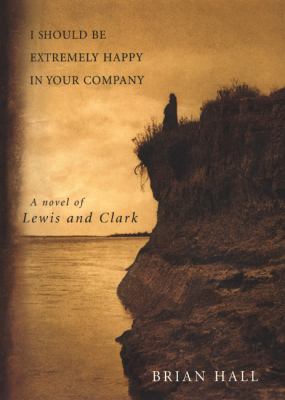
by Brian Hall
Library Journal
: At first glance, one might question the need for yet another book about intrepid American explorers Meriwether Lewis and William Clark. But as one delves into this book, one realizes that it is less about the adventure and more about the psychic forces that drove the participants to undertake the journey and eventually led to Lewis's untimely death. Hall (The Saskiad) has taken the record as he found it and filled in the gaps, imagining character traits and unrecorded incidents that would seem to provide plausible explanations for some puzzling historical questions. The story is told through four narrative voices-Lewis's, Clark's, Sacajawea's, and that of her fur-trading husband, Toussaint Charbonneau. In each case, Hall tries to capture their unique language and vision and create a real feel for the cultural collision that was occurring. Thus, spellings, grammar, and punctuation vary and names frequently change-reflecting the Native American tendency toward ad hoc descriptives. The result is a compelling if sometimes difficult-to-follow tale that can be well recommended to all fans of serious historical fiction. It is particularly suitable for public libraries, though as a word of caution, it should be pointed out that these Native Americans are not bashful about using graphic terminology to describe natural functions.-David W. Henderson, Eckerd Coll. Lib., St. Petersburg, FL Copyright 2003 Reed Business Information, Inc. Distributed by Syndetic Solutions Inc. Terms
Publishers Weekly
: Though it joins a crowded field of Lewis and Clark narratives, this formidable third novel by Hall (The Saskiad) is not to be dismissed. Narrated in multiple distinct voices, this retelling of the story of Meriwether Lewis and William Clark's legendary expedition is less a historical blow-by-blow than an engaging character study of the two men. Hall focuses on a few significant episodes in the journey-such as the hunting accident that wounds Lewis and causes him to sink into his famous depression-as seen through the eyes of Lewis, Sacagawea, Clark and Toussaint Charbonneau, Sacagawea's French fur trader husband. The result is a memorable portrait of the expedition leaders. Lewis is melancholy but ambitious and erudite, worried that he doesn't have the literary skill to render their adventures and discoveries. The sunnier Clark has the sensibility of an artist and the courage of a soldier, but he lacks the fortitude and discipline to build on his advantages. Hall is especially interested in the encounters between Native Americans and white explorers, and he details the violent struggles with Blackfeet Indians and others. Some readers may become frustrated with Sacagawea's stream-of-consciousness narration, in which proper nouns are not capitalized ("she remembered the raids in her own time, the one near beaver's head on blue crow's camp by the blackshoes when two bears' older brother (this one's bigfather), wolf tooth, was killed along with his son, chalk"), but the lyrical and precise prose will reward those who stick with it. In any case, such distractions are minor when measured against the rest of Hall's vivid, enthralling tableau. Copyright 2002 Reed Business Information, Inc. Distributed by Syndetic Solutions Inc. Terms
|